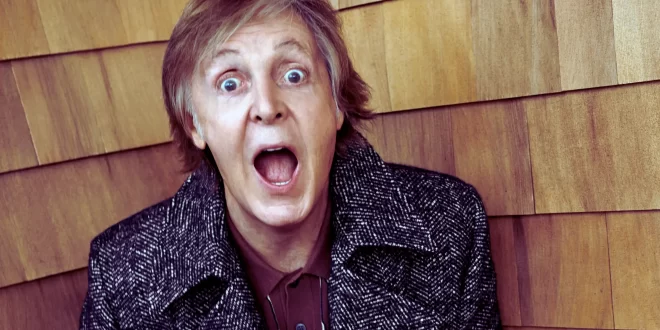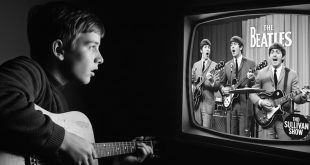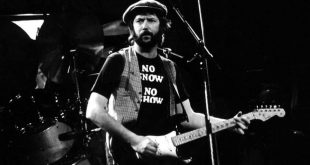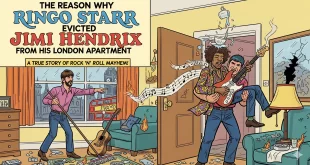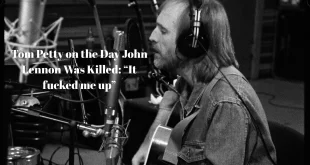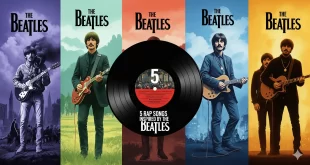When we think of Paul McCartney, the first image that often comes to mind is his era-defining role as one-fourth of The Beatles. However, his influence stretches far beyond the 1960s. In fact, McCartney’s impact is deeply woven into the fabric of modern indie rock. From his inventive bass playing and genre-blending songwriting to his DIY approach in later solo projects, Paul McCartney’s fingerprints are all over the indie rock scene of today.
Melodic Basslines: Redefining the Role of the Bass Guitar
One of the most distinctive contributions McCartney made to rock music was his innovative approach to the bass guitar. Rather than merely following the rhythm, McCartney’s basslines were melodic, expressive, and often led the direction of the song. This style has heavily influenced indie rock bands like The Shins, Vampire Weekend, and Arctic Monkeys, who often use bass as a melodic anchor rather than just a background element.
Genre Experimentation and Sound Diversity
Paul McCartney never confined himself to a single genre. From psychedelic rock and classical arrangements to folk and avant-garde pop, his fearless experimentation encouraged countless indie musicians to think outside the box. Indie rock as a genre thrives on eclectic sounds — something McCartney championed decades earlier.
Take Tame Impala, for example. Kevin Parker has often cited McCartney and The Beatles as key influences, particularly in their willingness to bend genre boundaries and embrace rich sonic textures.
DIY Ethos and Independent Spirit
While The Beatles were part of the mainstream music machine, McCartney’s post-Beatles work — particularly with Wings and as a solo artist — reflected a more independent approach. His home recordings, personal production style, and unconventional distribution methods set the stage for today’s indie artists, many of whom create music in home studios and release it without major label support.
Lo-Fi and Bedroom Pop: Echoes of McCartney’s Solo Work
McCartney’s 1970 debut solo album, McCartney, recorded largely by himself at home, was a precursor to what we now call “bedroom pop.” The raw, intimate nature of the album inspired a whole movement in indie rock that values authenticity over perfection. Modern artists like Mac DeMarco, Clairo, and Rex Orange County follow in these footsteps, offering lo-fi aesthetics and emotionally resonant songwriting.
Lyrical Vulnerability and Emotional Honesty
McCartney’s songwriting often touched on universal human emotions — love, loss, nostalgia, hope — with a sense of emotional honesty that resonates deeply in today’s indie scene. Tracks like “Maybe I’m Amazed” and “Blackbird” are heartfelt, personal, and timeless. Indie artists such as Phoebe Bridgers, Sufjan Stevens, and Elliott Smith carry on this legacy with their introspective lyricism.
Collaborations With Indie Artists
In recent years, Paul McCartney has actively engaged with the indie music world. His 2020 album McCartney III Imagined featured remixes and covers by indie artists such as St. Vincent, Beck, Phoebe Bridgers, and Blood Orange. These collaborations highlight the mutual respect between McCartney and the new generation of musicians, bridging decades of musical evolution.
Legacy in Modern Music Production
Paul McCartney’s work with George Martin and The Beatles pioneered studio innovation — multi-tracking, tape loops, backward recording, and orchestration — techniques that are now standard in indie rock production. His adventurous use of the studio as an instrument paved the way for producers and bands to treat the recording process as an art form in itself.
Conclusion: The Timelessness of McCartney’s Influence
Paul McCartney’s influence on modern indie rock is undeniable. From his melodic sensibilities and emotional depth to his fearless innovation and independent spirit, his legacy continues to inspire a new generation of musicians. Whether consciously or unconsciously, today’s indie rockers walk in the footsteps of a man who helped define modern music.
So the next time you hear a catchy bassline, a homespun acoustic ballad, or a genre-blending indie track, there’s a good chance Paul McCartney had something to do with it — even if indirectly.
